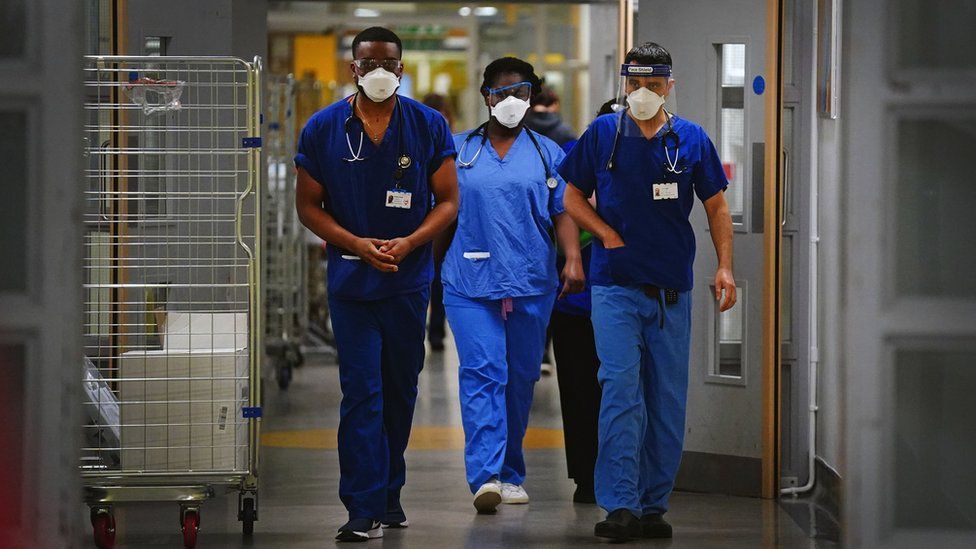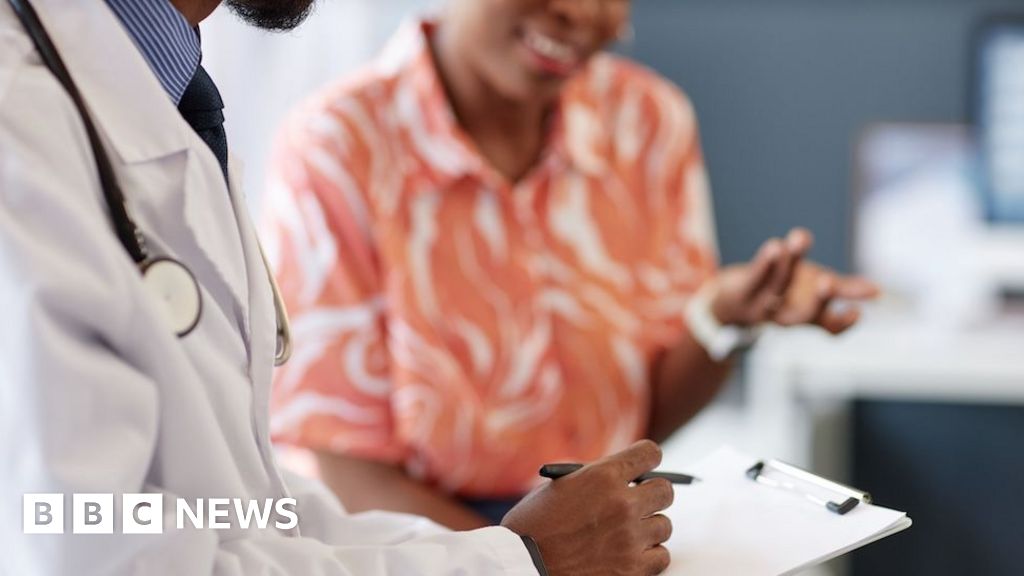ARTICLE AD BOX
 Image source, PA Media
Image source, PA Media
Racism in the NHS meant some doctors felt unable to challenge being given unsuitable protection, the Covid inquiry heard
By Ashitha Nagesh
Community affairs correspondent
Doctors belonging to ethnic minorities were "less likely to speak up" when given unsuitable personal protective equipment, the Covid inquiry has heard.
Prof Philip Banfield, who chairs doctors' union the BMA, said two-thirds of doctors felt they had not been given a proper risk assessment.
Ethnic minorities were significantly more likely than white British people to both catch and die of Covid.
Bangladeshi, Pakistani and Caribbean backgrounds were particularly affected.
The first 10 doctors to die of Covid-19 in the UK all belonged to ethnic minorities - as did 85% of those who died in the first year of the pandemic.
"PPE needs to be particularly well fit tested - and it doesn't suit people with beards, for example, for religious purposes," said Prof Banfield of the British Medical Association.
But because "the NHS is acknowledged to be institutionally racist", doctors belonging to ethnic minorities had been "less likely to be forthright about saying, 'I need to have appropriate respiratory protective equipment.'"
This had now "been recognised by the NHS - and there are very active steps being put [in place] to correct that, both driven by [the BMA] and NHS England".
"The best phrase that I've heard about that situation was that we were all in the same storm but not in the same boat," Prof Banfield said.
"There were clear discrepancies about how the pandemic was affecting different parts of our society - the poorest, the homeless, those who were already vulnerable."
Prof James Nazroo told the inquiry there had been too few studies of ethnic inequalities before the pandemic.
In 2018, Public Health England "clearly stated the need to explicitly consider ethnicity within health-inequalities work, cautioning that avoiding this could produce poor health outcomes and ineffective, or even harmful, interventions".
But decision makers took a "colour-blind approach" and "disregarded existing economic, social and health vulnerabilities experienced by ethnic-minority groups".
Image source, Reuters
Image caption,The inquiry is currently examining political governance and core decision-making in the UK
As well as experiencing the stress of racism, some people belonging to ethnic minorities were also more likely than white British people to be in poor housing, with precarious accommodation and work, Prof Nazroo added.
The inquiry's counsel, Hugo Keith KC, said equality organisations responding to questionnaires it had sent them about the impact of the pandemic on people belonging to ethnic minorities had described a "lack of consultation and involvement in decision-making, resulting in a lack of influence over the decisions that affected them".
"The Covid pandemic, and some of the measures implemented, exacerbated pre-existing inequalities", he said, and "the government communications were unclear and failed to consider the impact on disadvantaged groups".
The Traveller Movement, which advocates for Gypsies, Romany Gypsies and Irish Travellers, also "noted the contrast between the response of the Republic of Ireland, and Northern Ireland and the United Kingdom".
"In the Republic of Ireland, travellers were supported whilst in isolation or quarantine through the provision of food… and mental health support," Mr Keith said.

 1 year ago
27
1 year ago
27








 English (US) ·
English (US) ·